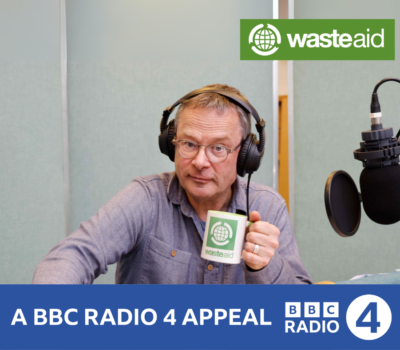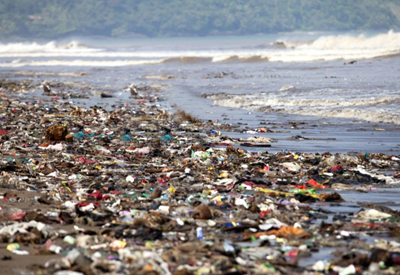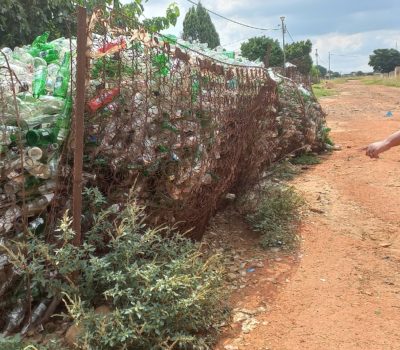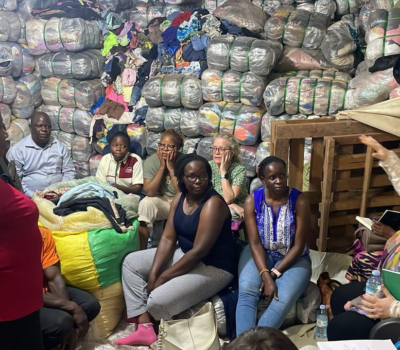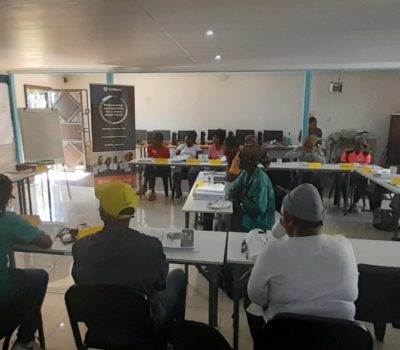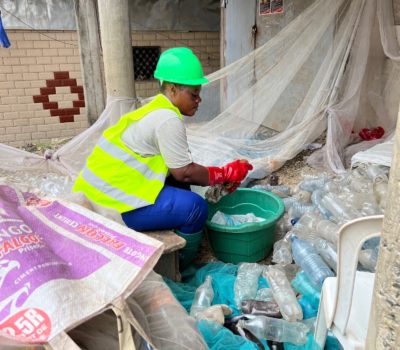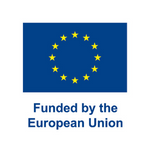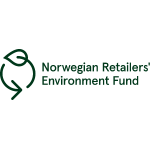Sir David Attenborough backs new report revealing stark health impacts of plastic pollution and rubbish on world’s poorest people
News
Author: Admin
Published: 14 May 2019
- One person dies every 30 seconds in developing countries from diseases caused by plastic pollution and rubbish
- Sir David Attenborough backs report saying ‘it’s one of the first to highlight the impacts of plastic pollution…on world’s poorest people’
- Open-air burning of plastic and rubbish in developing countries adds to carbon emissions, contributing to climate change
- Multinational companies selling single-use plastic in developing countries must make fundamental changes to business models to halt health crisis
Download the full report (PDF)
One person is dying every 30 seconds in developing countries from diseases and illnesses caused by plastic pollution and uncollected rubbish dumped or burnt near homes.
The new figures were released in a report called No Time to Waste: Tackling the Plastic Pollution Crisis Before it’s Too Late by international relief and development agency Tearfund, in collaboration with conservation charity Fauna & Flora International (FFI), the Institute of Development Studies and waste management charity WasteAid. The report looks at the health impact of plastic pollution and rubbish on the world’s poorest people for the first time.
It found that each year between 400,000 and a million people (at the upper end one person every 30 seconds) are dying in developing countries from illnesses and diseases like diarrhoea, malaria and cancers caused by living near uncollected waste and plastic pollution.
The report calls on multinational companies to fundamentally change their business models by committing to reporting the number of single-use plastic items they distribute in developing countries by 2020, and halving this by 2025.
“This report is one of the first to highlight the impacts of plastic pollution not just on wildlife but also on the world’s poorest people,” Sir David, a vice president at Fauna & Flora International, said.
“It is high time we turn our attention fully to one of the most pressing problems of today – averting the plastic pollution crisis – not only for the health of our planet, but for the wellbeing of people around the world.”
“We need leadership from those who are responsible for introducing plastic to countries where it cannot be adequately managed, and we need international action to support the communities and governments most acutely affected by this crisis.”
Globally two billion people, (one in four), don’t have their rubbish collected, often leading to disease and death. When rubbish isn’t collected it often builds up in rivers and causes flooding, which can lead to diarrhoea and a host of infectious diseases.
Often the only other way to dispose of waste is to burn it in the streets, with the resulting fumes being extremely damaging to health as well as – in some countries – being the single largest source of carbon emissions, contributing to climate change.
Dr. Ruth Valerio, Global Advocacy & Influencing Director at Tearfund said: “Today Tearfund launches our new Rubbish Campaign, which calls for urgent action from four multinationals – Coca-Cola, Nestlé, PepsiCo and Unilever.
“They sell billions of products in single-use plastic packaging in poorer countries where waste isn’t collected, in the full knowledge that people will have no choice but to burn it, discard it in waterways or live among it.
“The CEOs running these multinationals can no longer ignore the human cost of single-use plastic – fundamental changes to business models are urgently required. There is no time to waste.”
Elisabeth Whitebread, Programme Manager, Marine Plastics for Fauna & Flora International said: “This report is a wake-up call to industry about the interconnected threat that plastic pollution poses to marine and human health. While the findings are shocking, this is not an unsolvable problem.
“As a first step, companies can commit to a full audit of product life cycles, including supply chains, so we can identify where plastic is polluting the environment and bring it to a stop.”
Patrick Schröder, Research Fellow at Institute for Development Studies, said:
“Plastic pollution is damaging our planet and our lives. The current model of ‘take, make, use and dispose’ is unsustainable. Businesses, governments and citizens need to embrace a ‘circular economy’ that promotes sustainable consumption and production and reduces environmental impacts.
“There are a growing number of examples of the circular economy in action – particularly across Africa and Asia – and we need to learn from these initiatives to inform and scale future efforts to tackle this pressing global challenge.”
Zoë Lenkiewicz, Head of Programmes and Engagement at WasteAid added: “The problems caused by plastic packaging waste are universal, with people and wildlife everywhere being seriously affected.
“Large companies place vast amounts of single-use plastic into communities that don’t have waste management, with significant and growing planetary health impacts. As this report shows, we cannot recycle our way out of plastic pollution – we need systemic change.”
Sir David will introduce the report later today at the Wall Street Journal’s CEO Council in London.
Other key facts in the report: (references in the report)
- Every second a double-decker busload of plastic waste is burned or dumped in developing countries.
- Global plastic production emits 400 million tonnes of greenhouses gases each year– more than the UK’s total carbon footprint.
- An estimated 8 –12.7 million tonnes of plastic is entering the oceans every year.
- Every 30 seconds the UK throws away 2 double-decker busloads of plastic waste.
- Living amongst plastic pollution and uncollected waste doubles the incidence of diarrhoeal disease.
Written by Zoë Lenkiewicz
ENDS
STATISTICS EXPLAINED
The analysis conducted for No Time to Waste: Tackling the Plastic Pollution Crisis Before it’s Too Late was based on published data, academic research and expert opinion for three links between waste and health: air pollution from burnt waste, diarrhoeal disease caused by dumped waste, and mosquito-borne disease caused by dumped waste. This indicated that between 400,000 and 1 million people die each year because of diseases caused by mismanaged waste. One million people a year is approximately one every 30 seconds. The full methodology is described in an annex to the report.
CAMPAIGN
We want the companies (Coca-Cola, Nestlé, PepsiCo and Unilever) to take responsibility for their plastic waste in poorer countries by:
- Report – by 2020 on the number of single-use plastic products they sell
- Reduce – commit to halve the number of these products by 2025
- Recycle – by 2022, ensure one single-use plastic item is collected for every one they sell
- Restore – work with waste pickers to provide employment with dignity.
Tearfund is a Christian relief and development agency and a member of the Disasters’ Emergency Committee. Tearfund has been working around the world for more than 50 years responding to disasters and helping lift communities out of poverty. For more information about the work of Tearfund, please visit www.tearfund.org.
Fauna & Flora International (FFI) (www.fauna-flora.org) FFI protects threatened species and ecosystems worldwide, choosing solutions that are sustainable, based on sound science and that take account of human needs. Operating in more than 40 countries worldwide, FFI saves species from extinction and habitats from destruction, while improving the livelihoods of local people. Founded in 1903, FFI is the world’s longest established international wildlife conservation organisation and a registered charity. Nathan Williams, Press Officer, +44 (0)1223 749 010 or +44 (0)7725 594 205/ nathan.williams@fauna-flora.org
The Institute of Development Studies (IDS) is a global research and learning organisation for equitable and sustainable change. Hannah Corbett, Head of Communications and Engagement, +44 (0)1273 915640/ 07701286978/ h.corbett@ids.ac.uk
WasteAid is a UK registered charity set up by waste management professionals to tackle the global waste crisis. Contact Rose Bradbury, Senior Fundraising & Communications Officer, WasteAid, media@wasteaid.org


